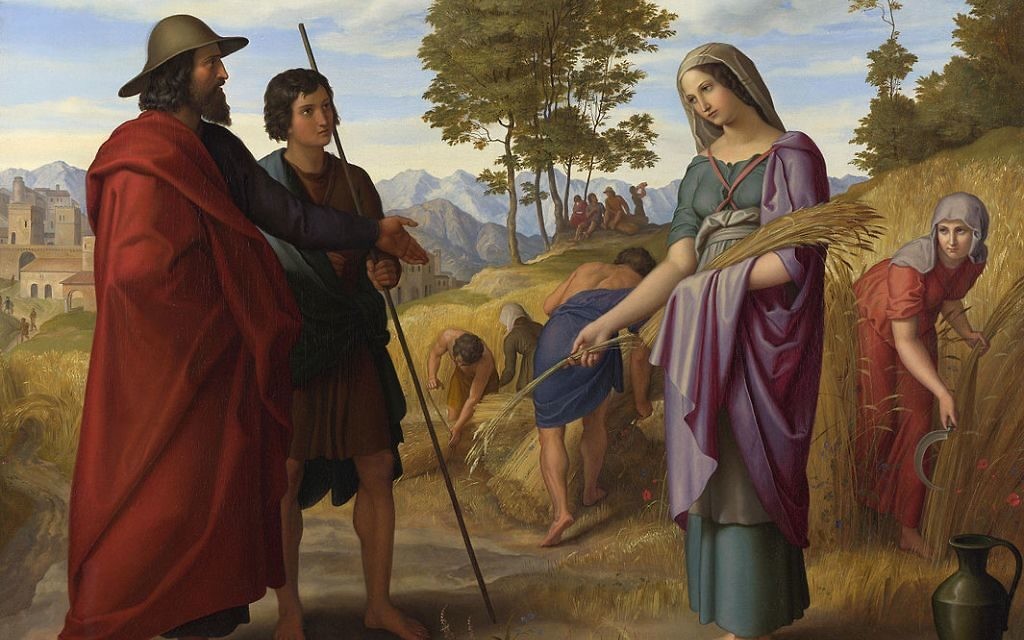Respecting Converts
Once someone becomes Jewish, it's inappropriate to question that person's journey or motives.

I recently sat on a beit din with two other rabbis and asked a candidate for conversion the question that is always part of the process: “Why are you choosing Judaism?”
The answers I have heard over the years get to the core of what makes Judaism both eternally powerful and relevant today. Some people talk about the value of ritual in general or of particular rituals, such as Shabbat or holidays.
One woman in California spoke of how the observance of Shavuot and Sukkot elevated her long-held interest in growing her own vegetables to a spiritual practice, inspiring me to rethink the way I looked at gardening.
Get The AJT Newsletter by email and never miss our top stories Free Sign Up
Others speak of space created in Jewish life for complexity and messiness while not forsaking holiness and divine connection. Growing up, one young man enjoyed a rich spiritual life. But when he came out, there was no space for him in the fundamentalist religion of his youth. Judaism allowed him to be at peace with both his sexuality and his relationship with G-d.
For many, it is the Jewish commitment to debate among ourselves and with G-d that makes Judaism a good fit; for others, it is what they have sought their whole lives.
Inevitably, the answers inspire me. They remind me of the many reasons I chose to be a rabbi.
In the context of the beit din, the process of asking questions and getting answers is expected and acceptable. But every time I ask, I am reminded of a time when it was much less acceptable and still I persisted.
I was a college student sitting with a good friend late one night in the dormitory of the Jewish Theological Seminary. My friend was in graduate school and would go on to become a rabbi. But that evening I was relentless. I was focused on one thing and one thing only: I wanted to know why he had chosen to convert to Judaism.
Looking back, I was rude and self-centered. He owed me no explanation or answers.
I have seen this scene play out many times since: Jews by birth demanding to know why converts convert.
I’d like to believe that often what drives this line of questioning is general curiosity and true interest in the story of the other. While curiosity is understandable, it is important to remember no one owes our curiosity an answer.
But often there is an edge to asking about why someone converted. I know in my case there was. I was deep in an epic personal struggle with tradition. I felt I had no choice but to be part of the Jewish people but felt constricted by that fate. I could not imagine the world in which someone would happily embrace what troubled me so.
But my friend owed me no explanation. I made my problem his.
I’ve seen others ask about reasons for conversion as part of a broader interrogation of the legitimacy of the conversion process or the motivation for conversion, similarly inappropriately intruding on the privacy of others.
These are the very lines of questioning that the rabbis of old hoped to avoid when they taught that once an individual converts to Judaism, that person is fully Jewish, and that Judaism, like that of people born Jewish, is not a topic for discussion or question. Unless it is in the context of a broader conversation about Jewish identity, asking a convert about the journey and its reasons is generally inappropriate and intrusive. Outside the context of the beit din, converts owe other Jews no answers.
Outside the beit din, we can engage with converts the way we might with all other Jews, with respect, understanding, openness and good intentions.
How different might my cringe-worthy college conversation have been if I had simply asked my friend to share some of what he found joyful about Judaism and shared with him some of my own struggles and joys? I can imagine a rich conversation about a love of Jewish holidays or a deep discussion of the role of G-d in our daily lives. Instead of putting the burden on him, connecting and sharing might have broken down some of my internal Jewish frustration.
It is not an accident that one of the great-grandmothers of King David, Ruth, was a convert. People who have chosen Judaism have much to teach those of us who have been Jews our whole lives. They have perspectives that are unique to their experiences, perspectives that can add to and enhance our Jewish collective if we value them as we do our own.




comments